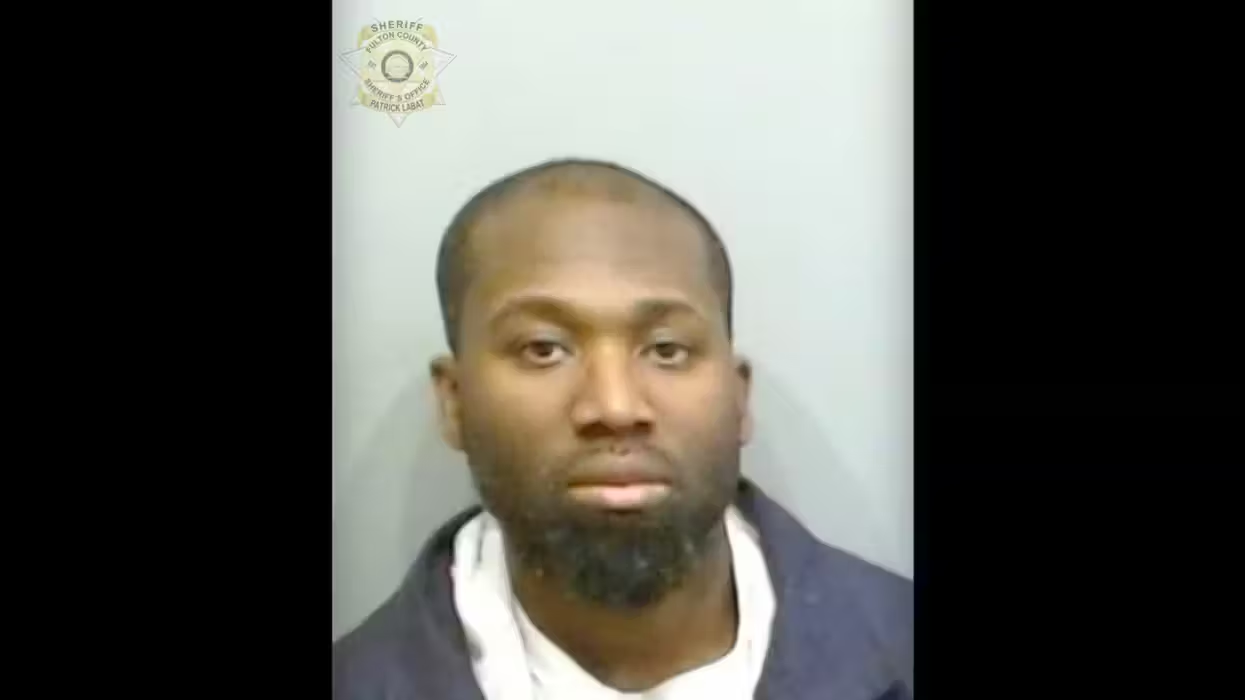
© 2025 Blaze Media LLC. All rights reserved.
Is the Veterans Affairs Dept. Trying to Prevent Some Vets From Owning Guns?
February 22, 2013
"...our military veterans don’t deserve this and neither do any other Americans."
 (Image: Wikimedia)
(Image: Wikimedia)
A letter from the the federal Department of Veteran's Affairs detailing how a veteran deemed incompetent of making their own payment decisions for VA benefits and would therefore be ineligible to own firearms has been gaining traction recently. TheBlaze has been inundated with tips from readers wanting to know more.
We're here to report that this discussion already has cropped up in recent months and that it is not a new practice by the VA. This doesn't make it any less worthy though for us to point out that it is raising questions among many.
In a "disturbing report" posted on Red Flag News, Constitutional Attorney Michael Connelly writes that he has received a letter and heard several stories of what might "sound like something right from a documentary on a tyrannical dictatorship somewhere in the world." This scenario is depicted by Connelly as follows:
How would you feel if you received a letter from the U.S. Government informing you that because of a physical or mental condition that the government says you have it is proposing to rule that you are incompetent to handle your own financial affairs? Suppose that letter also stated that the government is going to appoint a stranger to handle your affairs for you at your expense? That would certainly be scary enough but it gets worse.What if that letter also stated: “A determination of incompetency will prohibit you from purchasing, possessing, receiving, or transporting a firearm or ammunition. If you knowingly violate any of these prohibitions, you may be fined, imprisoned, or both pursuant to the Brady Handgun Violence Prevention Act, Pub.L.No. 103-159, as implemented at 18, United States Code 924(a)(2).”?
He calls the stories he has heard as his capacity as executive director of the United States Justice Foundation "appalling." Below are a few screenshots from the letter Connelly included, but you can see the full images here.



TheBlaze reached out to the Department of Veteran's Affairs for more insight but has not heard back yet. From what we found on its website, the VA's Fiduciary Program was established to "protect veterans and beneficiaries who are unable to manage their VA benefits through the appointment and oversight of a fiduciary."
Under the program -- and as stated in the letter -- if a person is deemed incompetent -- which could be due to injury, disease or mental illness -- and unable manage benefit payments, someone can be named as a fiduciary to do so for them. This person, the website states, is generally a family member but court-appointed or professional fiduciaries are possible as well (therefore Connelly's assertion that a "stranger" be named is technically possible, but not the rule).
The counterargument, however, might sound something like this: If a person is rated as too incompetent to handle their own benefit payments, might it be a good time to consider other things that might not be advisable for the person to handle?
The VA states on its Fiduciary Program website, according to the Brady Handgun Violence Prevention Act, being determined as unable to manage benefits then prevents you from "purchasing, possessing, receiving or transporting a firearm or ammunition." This act was signed into law in 1993.
As TheBlaze reported in December 2012, some congress members and others want this law changed:
Sen. Tom Coburn, R-Okla., sought to amend the bill to stop the Veterans Affairs Department from putting the names of veterans deemed too mentally incompetent to handle their finances into the National Instant Criminal Background Check System, which prohibits them from buying or owning firearms.[...]
“We consider it an abject tragedy that so many of our veterans return home, after risking life and limb to defend our freedom, only to be stripped of their Second Amendment rights because they need help managing their compensation,” Chris Cox, the NRA’s chief lobbyist, wrote last year in an editorial.
But Connelly in his piece on Red Flag News takes issue with the fact that the letter doesn't specify how incompetency is determined.
"In every state in the United States no one can be declared incompetent to administer their own affairs without due process of law and that usually requires a judicial hearing with evidence being offered to prove to a judge that the person is indeed incompetent," Connelly wrote.
The VA's Fiduciary Program website doesn't delve into this either. It does state that a person has the right to appeal his or her fiduciary if he or she disagrees with the fiduciary selection. This does not seem to imply that the classification of incompetency is appealable though.
Finding information about how veterans are evaluated for competency is hard to come by. A document detailing a job description for someone who would evaluate veteran claims, last revised in 2009, seems to give some insight (emphasis added):
The initial examiner develops evidence which would establish that the veteran’s actions are such that he cannot conduct himself in a rational manner. Guides are far from precise and considerable imagination is required to ferret out the kind of evidence upon which to base a sound conclusion. However, the primary knowledge requirement is that of understanding the manifestations of mental diseases. The rating board makes the decisions as to competency. Decisions of the VA in matters of competency may vary from court determinations and have a most important bearing on the right to receive benefits. If a beneficiary is judged to be incompetent, the examiner must seek further evidence to determine who should receive the monetary award due.
Connelly in his post stated that USJF will be filing a Freedom of Information Act Request to the VA in an effort to obtain the criteria used to determine competency, which might therefore be "plac[ing] veterans on the background check list that keeps them from exercising their Second Amendment rights."
It should also be pointed out that the VA website says being deemed incompetent to manage benefits does not affect non-VA finances or the person's right to vote.
Still, Connelly questions "who will be next"?
"If you are receiving a Social Security check will you get one of these letters? Will the government declare that you are incompetent because of your age and therefore banned from firearm ownership?" Connelly wrote. "It certainly fits in with the philosophy and plans of the Obama administration. It is also certain that our military veterans don’t deserve this and neither do any other Americans."
Let us know what you think of prohibiting veterans from owning firearms if they are deemed incompetent by taking our poll:
Update: We have corrected that the letter was sent from the federal U.S. Department of Veterans affairs out of its regional office in Oregon. The Oregon Department of Veterans Affairs, as it was first referenced, is a state agency that does not issue such rating letter like that discussed in this story.
TheBlaze also reached out to one of a military expert who is a veteran for more information regarding this topic. We will update this post if we hear back from him or the VA.
Featured image via Shutterstock.com.
Want to leave a tip?
We answer to you. Help keep our content free of advertisers and big tech censorship by leaving a tip today.
Want to join the conversation?
Already a subscriber?
more stories
Sign up for the Blaze newsletter
By signing up, you agree to our Privacy Policy and Terms of Use, and agree to receive content that may sometimes include advertisements. You may opt out at any time.
Related Content
© 2025 Blaze Media LLC. All rights reserved.
Get the stories that matter most delivered directly to your inbox.
By signing up, you agree to our Privacy Policy and Terms of Use, and agree to receive content that may sometimes include advertisements. You may opt out at any time.






